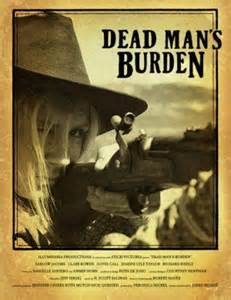There will always be a new American frontier, regardless of whether it’s comprised of sprawling expanses, emerging markets, cultural shifts, or breakthroughs in technology. And so long as that new frontier remains unsaturated or unregulated, people will refer to it – metaphorically – as the Wild West. It’s a large part of the reason the classic Western has survived for as long as it has, and it’s the key to why that genre has always provided a perfect mirror for our zeitgeist.
And yet there are trappings to the classic Western that don’t play well with modern audiences – the slow pacing (much of it indicative of daily life out on the prairie), the lack of polish, the utter cruelty toward woman. These are all innate western mechanisms that average moviegoers would much rather do without. As a result, one can see a a direct schism between Westerns made over the past 30 years – a central dividing line between the formulaic Hollywood shoot-em-up and the slow and even western tale.
To its credit, Dead Man’s Burden represents the latter. It is downbeat, if not desolate, and it even pays homage to classic titles like The Searchers and Once Upon a Time in The West along the way. Burden was filmed on location in the stark-open valley of New Mexico, amidst the tumbleweed and sandstone cliffs; the open sky and crack of gunfire. And – what’s more – it’s probably the closest thing we’ve seen to a true classic Western since 2005’s The Proposition(This despite the fact it’s much closer in style to the more recent Meek’s Cutoff). None of which is to say that Dead Man’s Burden does not come without its drawbacks – chief among them the fact that it is anchored by an Australian actress by the name of Claire Bowen who looks great on film, but never really manages to inhabit the skin of the complex character she’s playing.
Dead Man’s Burden is set in 1870, and it focuses on the eternal conflict between loyalty and ethics. Do you abandon what you believe in the name of your family? Do you abandon your family in the name of what you believe? Is money the ultimate justification for betrayal? Is it the very essence of all evil? How do we overcome our personal differences? Can we or should we, for that matter? What sins are people actually capable of when there is no real accountability? These are all worthwhile questions, to be sure. And they’re handled with expert care here. But in the end, it simply does not forgive the fact that Burden feels so unbelievably drawn out. And that’s a shame, really. Because this is a beautifully shot motion picture with a hell of a lot of living inside. Its only trespass is that it works far too hard to remain true to a classic genre – one that’s ultimately been rendered less relevant as a result of its long-standing failure to evolve.
(Dead Man’s Burden opens in limited release this coming Friday, May 3rd.)

